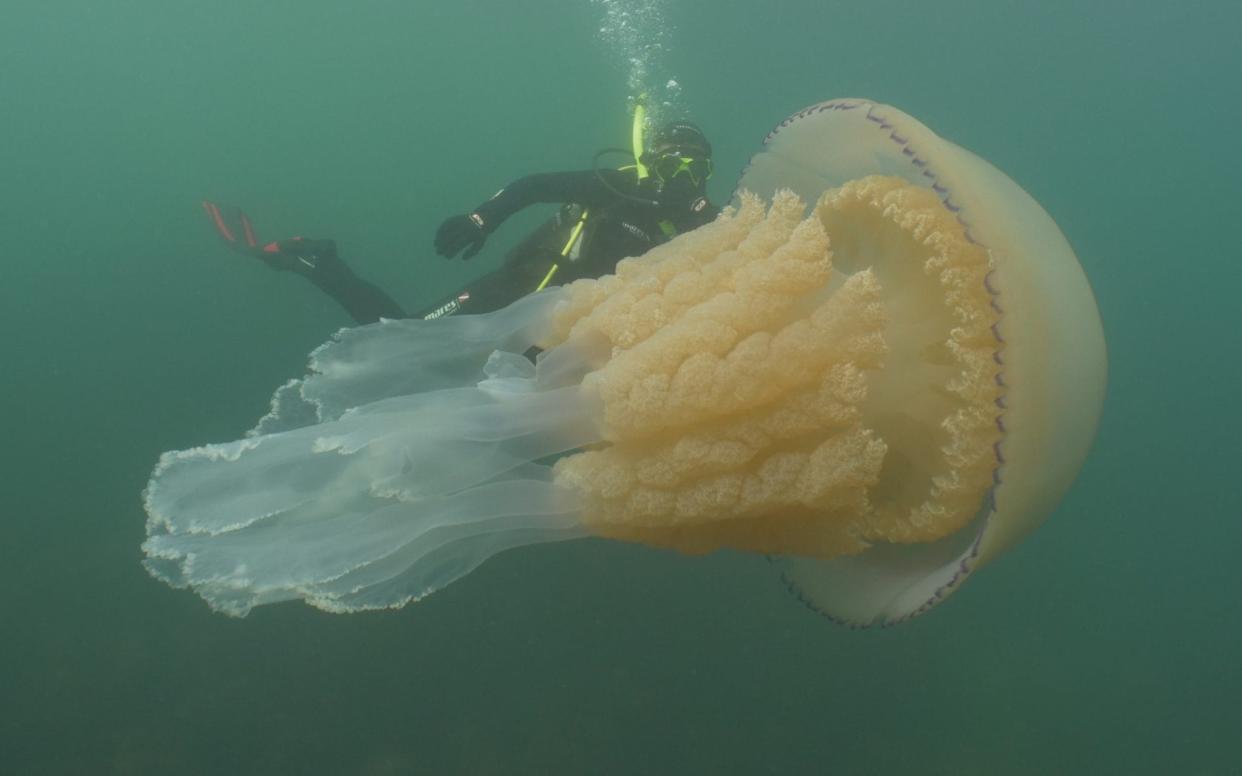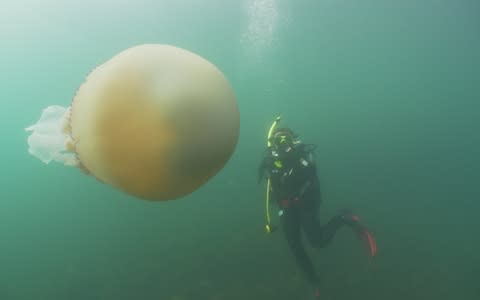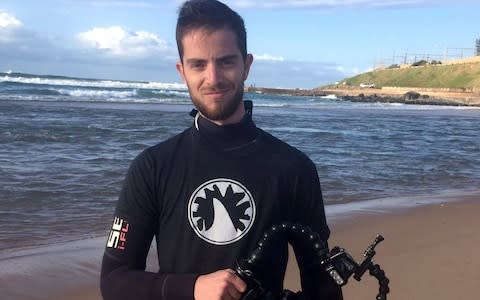Diver dwarfed by huge barrel jellyfish off coast of Cornwall

Most Britons only ever encounter barrel jellyfish when they wash ashore dead in early summer.
But biologist Lizzi Daly found herself swimming alongside a huge living eight-armed creature while diving off the coast of Falmouth, Cornwall, this week.
Daly spent around 25 minutes with the four-foot two-inch long jellyfish while underwater cinematographer Dan Abbott captured footage for Wild Ocean Week, which has seen the pair circumnavigate Britain to document UK marine wildlife.
“It’s the biggest jellyfish I’ve ever seen,” said Abbot. “There are a lot of them in the water at the moment.
“We saw another which was about half the size but most people that we've spoken to say they've never seen one that big.”
Barrel jellyfish are some of the largest found in Britain’s waters but they are rarely seen in the water and most have a bell diameter of just 15 inches (40cm). Only a few giant creatures have been recorded, including a sighting of one that was more than three feet wide off the coast of Falmouth in 1907.

Although some people questioned whether it was the camera angle that made the jellyfish appear so large, experts said it was possible they could grow to the size of a human.
Alex Ford, Professor of Biology at the University of Portsmouth, told The Telegraph: “Barrel jellyfish are common around our coasts in summer months as they come inshore to feed on plankton blooms.
“Their ‘bell’ diameter are more commonly around 40cm although they have been spotted with diameters up to 1m.
“Given their eight long tentacles are two to three times longer than the diameter of the ‘bell’ I see no reason why they couldn't be larger than a human.
“The jellyfish being in front of the diver in this photo is probably skewing in the perception of the size slightly but I have no reason to doubt that this one could have been human sized.”
It is thought thousands of barrel jellyfish move from the Atlantic to the warmer coastal seas, but little is known about the life cycle, such as where they spawn. Some experts believe they are entirely at the mercy of winds and currents and do not have breeding grounds to which they regularly return.

Although not considered harmful to humans, beach-goers are advised not to touch barrel jellyfish if they wash up as they can still sting when dead. The eight frilly arms contain small stinging tentacles which surround hundreds of tiny mouths.
Daly said: “I’ve never seen one that big. We had seen a few smaller jellyfish at a beautiful reef nearby, and then out of the murk came this huge, beautiful jellyfish.
“You just take a double look and ask yourself if it’s actually a metre and a half long.”
The largest species of jellyfish in British waters is the Cynea Capillata – or the Lions mane jellyfish - mentioned in the Sherlock Holmes story The Adventure of the Lion’s Mane.
Luke Hirst, Senior Aquarist and jellyfish expert at Sea Life London said: “It's not uncommon to find barrel jellyfish the size of the one that has been reported.
"In terms of this particular specimen, it is a large individual, however its size may have been enhanced by the camera angle.
"Barrel jellyfish are common along the coastlines of the UK, particularly on the South West and the Irish Sea.”

 Yahoo News
Yahoo News 
